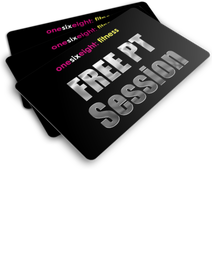At this time of year we often look for a quick fix to help lose weight after Christmas and turn to a fad diet for fast results. Most ‘diets’ are extreme and only good in the short term – before you fall off the wagon and give in to your favourite chocolate bar. Instead of a quick fix, I highly recommend taking some of the useful recommendations from a variety of diets and make your own food plan that works for your lifestyle.
Before you can start making changes to the foods you actually consume, you need to make sure your mind is in the right place and you have some ‘rules’ in place to help keep you on track. Follow these guidelines to help get started on developing a food plan that helps YOU to lose weight and keep it off too!
Next week we’ll look at what foods you should eat more of to help you lose weight.
Plan your meals in advance
Write out a plan of what you will eat for a week. You won’t be tempted to buy unhealthy foods in the supermarket. It may also help you to snack less and help to save the pennies.
Right place at the right time
If you know that you snack when you get in from work, place a bowl of fruit where you can see it when you first get in. Research shows that we pick the first thing we see when opening our cupboard or fridge, so put your healthiest snacks to the front.
Eat Breakfast!
Breakfast really is the most important meal of the day. It kick starts your metabolism and gives you the nutrients you need to keep you going through the day. A good breakfast will also mean you are less likely to overeat throughout the rest of the day too.
Take your time
When eating a meal, chew your mouthfuls properly, slow down the rate of eating and take regular sips of your drink. This gives your body time to signal to your brain when you are full, meaning you are less likely to reach for seconds or pudding when you don’t really need it.
Set yourself small goals
If you want to eat healthier, you will get there by making small changes instead of big ones! This makes your targets more manageable and less scary. For example, your goal might be to swap your high sugar cereal for a healthier one this week for a better breakfast. Remember small changes add up to big improvements.
Turn off the TV
Studies have shown that if we eat in front of the TV we are distracted by what we are watching. This means we are less likely to focus on what’s on our plate and may end up eating more.
Avoid rewarding yourself with food
Sometimes we give ourselves a reward, often in the form of sweets, chocolate or comforting foods. This comes from when we were children and our parents would reward us with goodies. Instead, if you deserve a treat, try and do something else positive such as a massage, hot bubble bath or buying the dress you wanted.
Everything in Moderation
We believe in eating everything in moderation. Although it’s not a great idea to be eating fatty foods such as cake, biscuits and ice cream every day, research has shown that allowing yourself to eat smaller portions of your favourite foods means you will be less likely to binge on them. Reducing your intake of chocolate is better than cutting it out!




